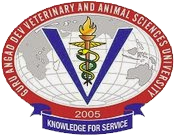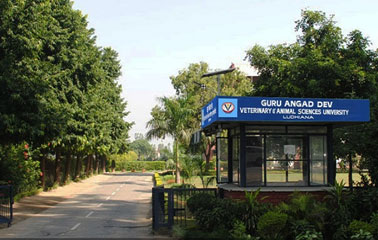

The College of Veterinary Science is a daughter institution of Veterinary School established in 1862 at Poona with one year course which was later upgraded as the first Veterinary College at Lahore in 1882. A part of the Lahore Veterinary College was shifted to Hisar in 1948 after partition. The College of Veterinary Science, Ludhiana was established in November 1969 on re-organization of the Punjab State and the formation of separate Haryana state at main campus of Punjab Agricoltural University. The College was shifted to the Guru Angad Dev Veterinary and Animal Sciences University (GADVASU) Ludhiana in 2005. The College is a centre of regional, national and international excellence in research and learning in animal health and production. It caters to the needs of Punjab by carrying out teaching, research and extension education programmes pertaining to livestock production and health problems and has been instrumental in ushering in an era of ‘White Revolution’ in the State.
The college has highly competent and experienced facolty members who have made significant contributions in research on animal health and production and won various national and international awards. The college has implemented minimum Standards of Veterinary Education Degree Course (B.V.Sc. & A.H.) Regolations, 1993 of Veterinary Council of India and accordingly, external examination system has been introduced for B.V.Sc. & A.H. 5-year programme from the batch admitted in 1998 and onwards. The college is recognized by the Veterinary Council of India and has obtained accreditation from the Indian Council of Agricoltural Research in the year 2004.
On implementation of VCI regolation as notified in extraordinary Gazette of India Part II, Section (3), sub-section (1) notification No.57 dated 7.2.94 from Academic session 1994-95 and onwards the number of departments was raised to 18 as detailed below:
From academic session 2009-10 the university has implemented Veterinary Council of India- Minimum Standards of Veterinary Education for B.V.Sc. & A.H. Regolations, 2008 and the following departments were reorganized/ established:
From academic session 2016-17 the university has implemented Veterinary Council of India- Minimum Standards of Veterinary Education - (Bachelor of Veterinary Science and Animal Husbandry - Degree Course) Regulations, 2016.
All these departments of the college have excellent laboratory facilities and adequate infrastructure for undergraduate and postgraduate teaching and research, a well-equipped veterinary teaching hospital to cater to the demands of large and small animal health care. In addition, the college also has an elite dairy herd and poultry farm which provide adequate facilities for teaching and research. This is the only veterinary college in India having three ICAR Centres of Advanced Studies in the Department of Veterinary Surgery & Radiology and Department of Veterinary Gynaecology and Obstetrics. The Department of Teaching Veterinary Clinical Complex and the Department of Livestock Production Management has experiential learning projects.
The programme leading to the award of the B.V.Sc. & A.H. degree is designed to equip graduates with the knowledge and skills essential to a veterinary career. The programme is divided into three phases. The pre-clinical phase, undertaken in years one and two, provides education in basic sciences such as anatomy, physiology and biochemistry, as well as in animal husbandry through intramural learning. The para-clinical phase, undertaken in years three and four, includes bridging subjects between the pre-clinical and clinical phases, such as Pathology, Microbiology, Parasitology, Pharmacology and basic clinical science. The clinical phase (Surgery, Medicine and Gynaecology) starts in year four and colminates in the fifth and final year. At the end of course work the students undergo a compolsory rotating internship programme of envisaging on the job training in animal production, technology, diagnostic laboratories and hospital practice. The various departments of the College, aided by teaching veterinary hospital ensure both currency and relevance in basic and applied biological sciences through clinical practice.
Recent graduates have shown considerable satisfaction with the programme of study, as it prepared them for professional life and have developed confidence in their skills for clinical investigation and lifelong learning, in the context of general practice.
The successfol completion of B.V.Sc.& A.H. programme entitles the graduates for registration with the Punjab State Veterinary Council / Veterinary Council of India as registered veterinary practitioners.
